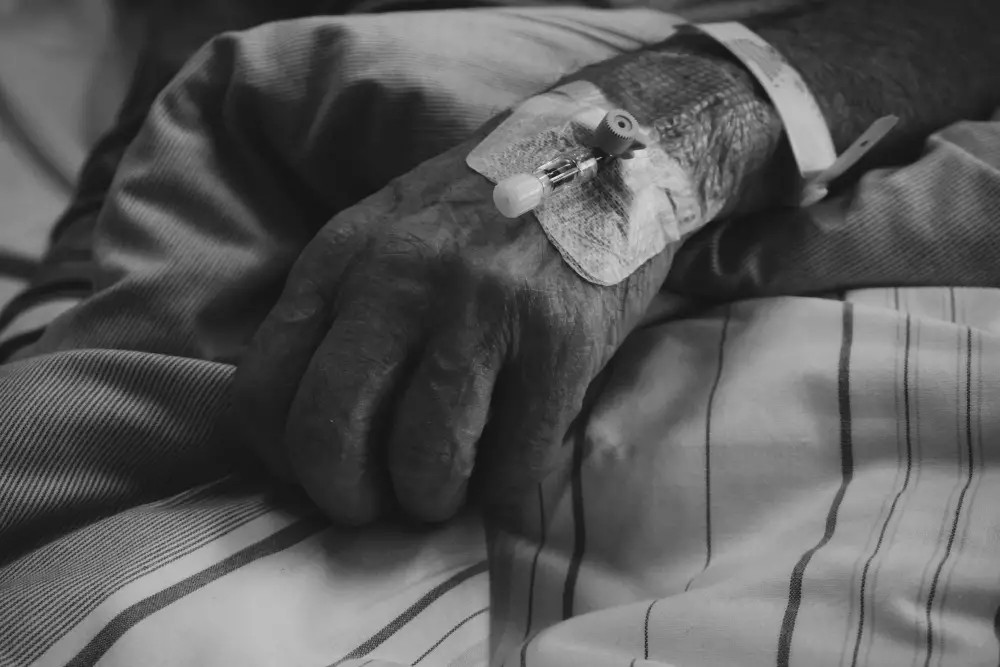Understanding the Signs of Life’s End: A Comprehensive Guide for Caregivers
Facing the reality of a loved one nearing the end of life is undeniably a poignant chapter in any caregiver’s journey. It represents a crossroads brimming with emotion, reflection, and often, an overwhelming sense of helplessness. As caregivers, recognizing the signs indicating that a parent or elderly loved one may be approaching their final days is crucial. This understanding empowers you to offer the necessary support and comfort during this critical time. By familiarizing yourself with these indicators, you can prepare yourself and your family to honor their wishes, celebrate their life, and ensure they transition with dignity and peace.
Dreams and Longing for the Departed
Among the more poignant signs that a loved one may be nearing the end of their life is the frequent expression of dreams about deceased relatives or friends. This phenomenon isn’t merely a random occurrence; it often reflects a profound emotional connection and a deep-seated longing for those who have passed on. Such conversations can evoke a range of emotions, including sadness and unease, yet they can also be viewed as a beautiful acknowledgment of their mortality.

In many cultures, dreams of departed loved ones are perceived as messages or visits from the afterlife, providing comfort to both the dreamer and their family. Engaging in discussions about these dreams can open up avenues for sharing feelings and memories, fostering a deeper emotional bond. For example, you might hear your loved one recount dreams in which they speak with a long-lost sibling or share laughs with a friend who has passed. These narratives serve as a reminder of the connections that transcend death, allowing you to reminisce and celebrate the lives of those who came before.
Conversations About Mortality
Another significant sign is when your elderly parent starts discussing funeral arrangements or openly expresses their thoughts on death. This shift can indicate a level of acceptance regarding their health and future. Such conversations can be incredibly challenging, often filled with tears and unspoken fears. However, they also present an opportunity for both you and your loved one to engage in candid discussions about their wishes and preferences surrounding end-of-life care. By approaching these sensitive topics with empathy and understanding, you provide your loved one with a sense of control and peace, which can be immensely comforting in their final days. For instance, you might assist them in writing a personal letter detailing their wishes or help them choose music that they would like to be played at their memorial service. These actions not only honor their preferences but also create a shared experience that strengthens your bond during this difficult time.

The Unpredictability of Terminal Lucidity
Terminal lucidity is a phenomenon that often surprises caregivers, occurring when a person who has been gravely ill suddenly appears to regain clarity and energy. This fleeting burst of vitality might manifest as a temporary increase in appetite, an eagerness to engage in conversations, or even a newfound ability to move around more freely. While this momentary improvement may seem promising, it is essential to understand that it often signifies the approach of death rather than recovery. This phenomenon can be confusing and emotionally challenging for caregivers, who may interpret it as a sign of hope. However, being informed about terminal lucidity is crucial. Recognizing it as a natural prelude to the end can help you navigate the emotional landscape of this experience. For example, if your loved one suddenly starts expressing a desire to share cherished memories or catch up with family members, it might be their way of saying goodbye. Understanding this allows caregivers to be present in the moment, savoring the connection while preparing for the inevitable.
The Importance of Emotional Preparedness
While recognizing these signs does not lessen the emotional pain of impending loss, it can significantly aid in preparing you and your family for what lies ahead. Being attuned to both the emotional and physical changes that your loved one experiences allows for a more profound connection and understanding. This awareness enables you to focus on creating a serene atmosphere filled with love and support. Consider spending quality time reminiscing about cherished memories, sharing stories, and expressing gratitude and love. These moments can be invaluable, both for you and your loved one, as they navigate this difficult phase of life. Engaging in activities they enjoy, whether it’s listening to music, looking through photo albums, or simply sitting quietly together, can foster a sense of peace and acceptance. Remember, these shared moments can pave the way for open conversations about fears, regrets, and hopes, ultimately allowing your loved one to feel seen and heard.

Creating a Supportive Environment for the Final Days
In these tender moments, the environment plays a crucial role in enhancing the quality of life for those nearing the end. A tranquil and familiar setting can ease anxiety and provide comfort. Surround your loved one with family members, their favorite belongings, and perhaps soft music that they enjoy. Aim to foster an atmosphere of love and acceptance, where they feel safe to express their emotions and fears. Encouraging open communication, while respecting their feelings of fear or sadness, creates a safe space for them. This supportive environment can significantly impact their experience, as it allows them to feel cherished and valued. You might even consider arranging visits from close friends or family members, ensuring that their final days are filled with warmth and connection. The goal should be to make them feel as comfortable and loved as possible, allowing them to transition peacefully.
Conclusion: Cherishing the Journey Together
Recognizing when a loved one is nearing the end of life is a profound and often heartbreaking experience. However, by understanding the signs and preparing emotionally, you can provide the love and support they need during their final days. These moments are not only about loss but also about celebrating a life well-lived, cherishing beautiful memories, and maintaining connections that transcend even the boundaries of life and death. As you navigate this journey together, remember to focus on love, compassion, and understanding, both for your loved one and for yourself. This path, while undoubtedly challenging, can also be a time of profound connection, reflection, and even joy. Embrace the opportunity to celebrate their life and legacy while providing the comfort they deserve as they transition from this world to the next.

















